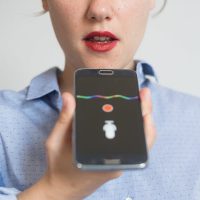Is It A Crime To Make A Secret Recording Of A Phone Conversation?

People who have grown up in the Internet Age are used to the fact that, whenever they go out in public, someone might be recording with a cell phone camera. For all you know, you might be an extra in someone’s homemade film if you happened to walk by within the camera’s view while they were filming their baby crawling on the beach. We still carry the assumption that private conversations are private. If you have a phone conversation in your house or car, you can and should assume that no one else hears the conversation except the person on the other end of the line. In Florida, it is against the law to record your own phone conversations unless all the other participants in the conversation consent to the recording. If you are being accused of illegally recording a phone conversation or otherwise intercepting a communication, contact a Tampa criminal defense lawyer.
Florida Law Prohibits Wiretapping, Eavesdropping, and Electronic Snooping
Florida Statute 934.03 prohibits “interception and disclosure of wire, oral, and electronic communications.” The actions covered by this statute are commonly called wiretapping, eavesdropping, and electronic snooping. If you illegally intercept or record someone else’s communications, you could be convicted of a third-degree felony, which carries a maximum sentence of five years in prison.
Is Wiretapping Ever Legal?
All states have laws about wiretapping, and law enforcement often uses the technique in criminal investigations. Investigators sometimes instruct witnesses in criminal investigations to wear recording devices in order to gain additional evidence. If a law enforcement officer asks you to wear a wire in order to record conversations as evidence, you should consult a criminal defense lawyer about this and other aspects of your case. In general, acting as an informant, with or without wearing a wire, involves the prosecution reducing the charges against you or granting you complete immunity from prosecution.
It is legal for you to record phone conversations, electronic communication, and in-person interactions, as long as you have the consent of all parties involved. Florida is an “all party consent” state, which means that, if you plan to record a conversation, you must notify all participants in the conversation before you start recording, and they must agree to it, or else the recording is illegal. If you access someone else’s email using their password, the person must authorize you in the moment to access their account; even if the person willingly shared their password in the past, consent applies to each login.
If you are in another state and you record your conversation with someone in Florida, you can face criminal charges in Florida, even if the state where you made the recording is a “one party consent” state. In practice, many wiretapping cases, especially those involving online communications, are tried in federal court.
Contact Tampa Criminal Defense Attorney Bryant Scriven
A criminal defense lawyer can help you if you are being accused of illegally recording a phone conversation or other communication. Contact Scriven Law in Tampa, Florida to schedule a consultation.
Source:
leg.state.fl.us/statutes/index.cfm?App_mode=Display_Statute&URL=0900-0999/0934/Sections/0934.03.html

